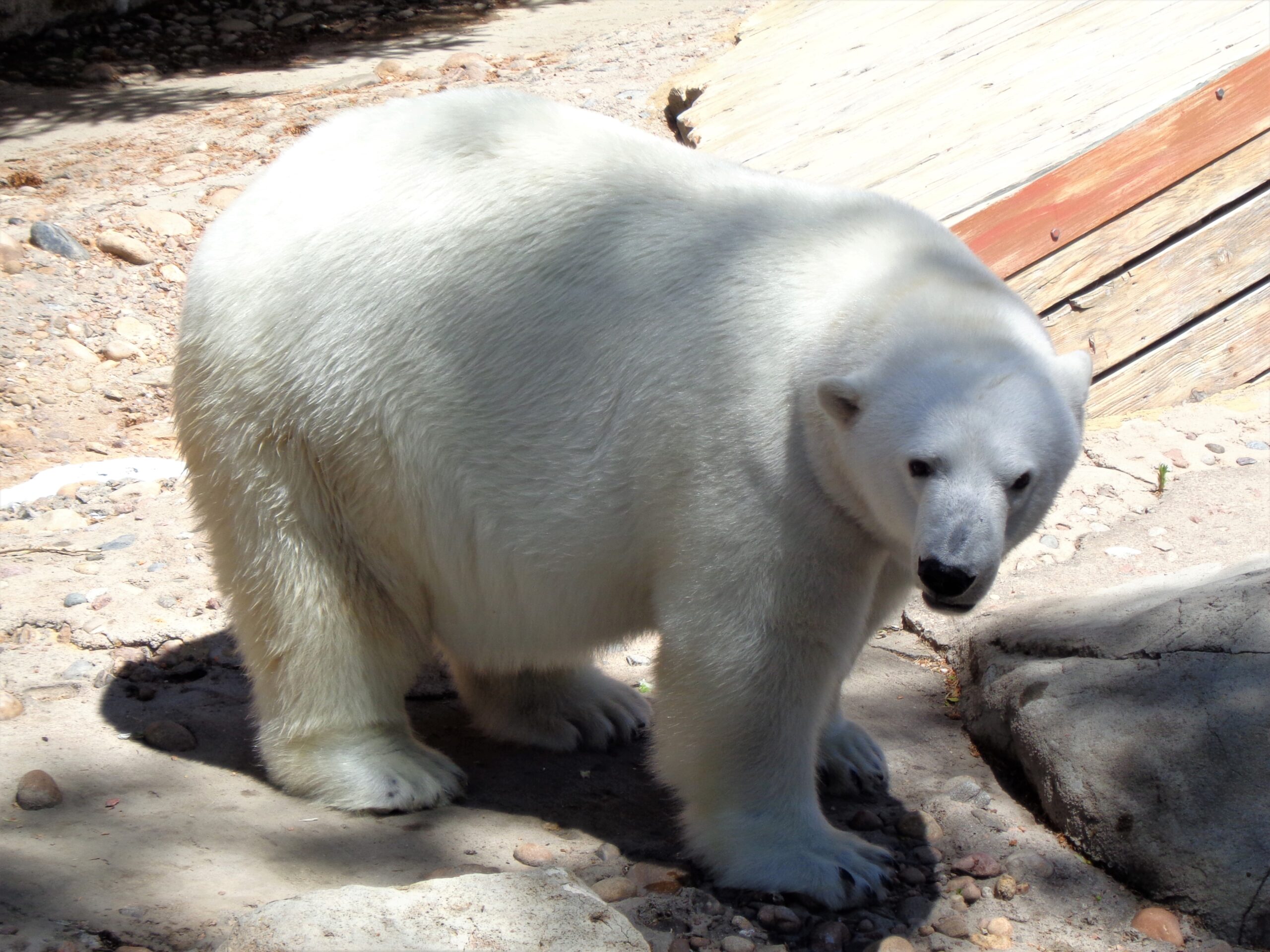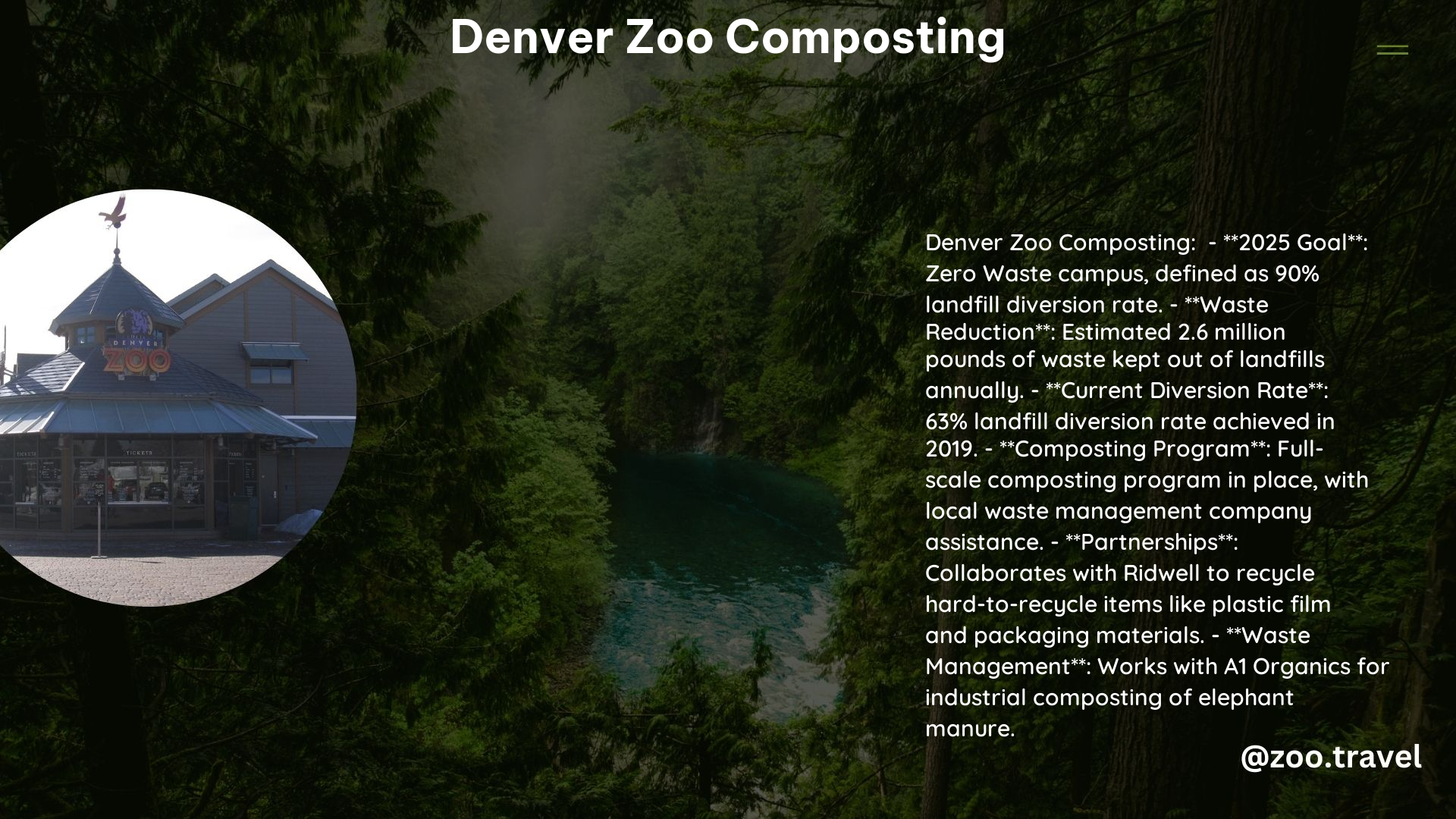Denver Zoo is committed to achieving Zero Waste by 2025, with a goal of keeping 90% of its waste out of landfills through composting, recycling, and repurposing materials on its campus. The zoo’s comprehensive composting program is a crucial component of this ambitious sustainability initiative.
Goal for Composting by 2025

Denver Zoo’s Zero Waste target is to divert 90% of its waste from landfills by 2025. Composting plays a significant role in achieving this goal, as the zoo aims to convert a large portion of its organic waste into nutrient-rich soil amendments.
Composting on Campus

Composting Program
Denver Zoo has a full-scale composting program in place, which includes composting animal waste and other organic materials generated on-site. This program is designed to divert as much waste as possible from landfills and turn it into a valuable resource.
Partnerships
To ensure efficient waste management, the zoo partners with local waste management companies for the hauling and recycling of its waste. These partnerships help the zoo streamline its composting and recycling efforts.
Waste Reduction
In addition to its composting program, Denver Zoo has implemented various measures to reduce waste, such as digitizing food ordering processes to reduce packaging and promoting recycling and composting among visitors. These efforts help minimize the overall waste generated on the zoo’s campus.
Challenges Faced
Contamination
Ensuring that composting materials are not contaminated is a crucial challenge for Denver Zoo. The zoo educates visitors on proper recycling and composting practices to minimize contamination and maintain the quality of the compost produced.
Infrastructure
Implementing and maintaining a comprehensive composting infrastructure, including facilities and logistics, can be a significant challenge for the zoo. Overcoming these infrastructure-related obstacles is essential for the success of the composting program.
Statistics and Achievements
Landfill Diversion Rate
As of 2019, Denver Zoo achieved a 63% landfill diversion rate, indicating significant progress towards its Zero Waste goal. This achievement demonstrates the zoo’s commitment to sustainable waste management practices.
Estimated Waste Reduction
By achieving Zero Waste, Denver Zoo estimates that 2.6 million pounds of waste will be kept out of landfills each year. This substantial reduction in landfill waste highlights the impact of the zoo’s composting and recycling efforts.
Community Engagement
Education
Denver Zoo educates visitors on the importance of recycling and composting, encouraging them to adopt sustainable practices in their daily lives. This community engagement helps raise awareness and promote environmental stewardship.
Partnerships
The zoo collaborates with local organizations and companies to expand its recycling and composting capabilities, such as its partnership with Ridwell for the collection of hard-to-recycle items. These partnerships enable the zoo to enhance its sustainability efforts and engage the broader community.
Denver Zoo’s comprehensive composting program is a testament to its commitment to environmental sustainability. By diverting organic waste from landfills and turning it into valuable soil amendments, the zoo is making significant strides towards its Zero Waste goal. Through community engagement, education, and strategic partnerships, Denver Zoo is leading the way in sustainable waste management practices, inspiring others to follow suit.
References
- Denver Zoo. (2020). Advancing Sustainability. Retrieved from https://denverzoo.org/zootales/advancing-sustainability/
- City and County of Denver. (2024). Denver Continues its Expansion of Citywide Compost Service. Retrieved from https://www.denvergov.org/Government/Agencies-Departments-Offices/Agencies-Departments-Offices-Directory/Department-of-Transportation-and-Infrastructure/News-Outreach/News/Compost-Expansion-Continues
- Association of Zoos and Aquariums. (2020). Waste Not Want Not. Retrieved from https://www.aza.org/connect-stories/stories/waste-not-want-not
- Glendale Cherry Creek. (2015). Questions Linger Over Denver Zoo’s Plan To Convert Trash, Manure to Energy. Retrieved from https://glendalecherrycreek.com/2015/08/questions-linger-over-denver-zoos-plan-to-convert-trash-manure-to-energy/
- Denver Zoo. (n.d.). Recycle. Retrieved from https://denverzoo.org/recycle/.
